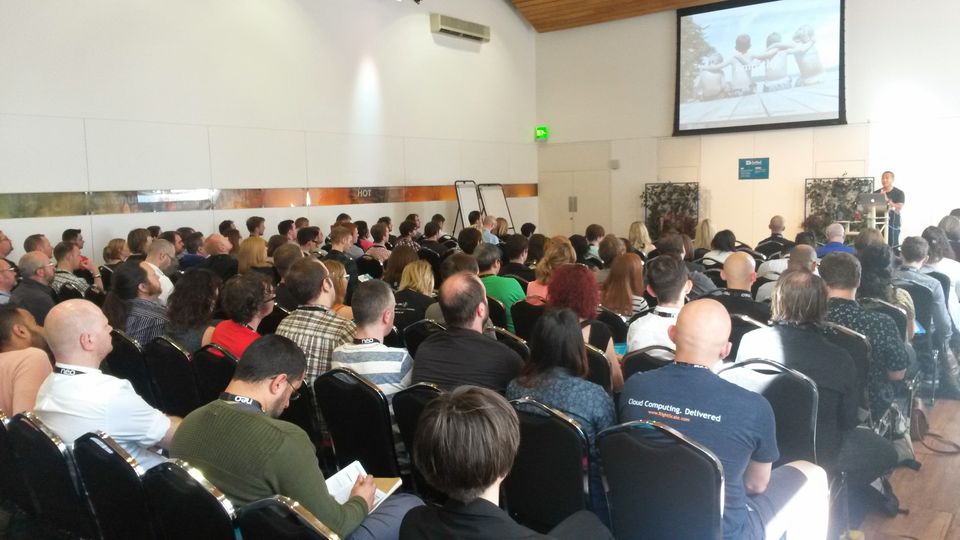Stupid Is As Stupid Does, Eewei Chen

I’m sharing notes from UX Scotland 2014, which took place in Edinburgh Thursday and Friday this week.
UX Scotland kicked off with tropical temperatures in the picturesque Our Dynamic Earth. Eewei Chen started the day asking about whether our smartphones were making us dumb.
He notes that as smart as computers are, there’s still a point where you probably need human intervention in order to actually make meaning out of the data.
“Smart solutions need human input to be smarter”
(This was something Alberta Trebla touched on later in the conference with the example of you changing your train schedule in order to go on holiday or the trains being down throwing a spanner in the works when it comes to contextual information.)
However, he did concede that this isn’t solely a tech issue, as trusting anything (e.g. your partner) means you give up some of your brainpower and having to pick up the slack if they go away for a while.
He gave three means with which to encourage human input and smarter solutions: through experience, knowledge (“Google gives us answers, libraries help us discover” ), and empathy. Personally, times like this I wonder whether Alan Cooper’s notion of ‘considerate software’ is a phrase that should be making a comeback.
With all of the information (or code halos) we can get from people using the web, Wei also suggested we use our powers for good and help create good habits and experiences. To do this, he turned to behavioural theories: as per Kahneman, we to help users engage their second, deliberate system of thinking where appropriate (more brainpower intensive but more considered than the first system automatic one), and find triggers ala BJ Fogg’s behavioural model to make the habits.Using the case study of Disney and an idea for wrist devices, Wei suggested that we can help improve experiences by:
- Getting real (understanding customers)
- Being a catalyst
- Empowering/rewarding them
A couple of his extra pointers reminded me of other books. His notes on creating addictive experiences (surprise, reward) is reminiscent of notes on …seduction. Similarly, his guide for creating brand loyalty by ‘connecting the dots’, ‘being good at one thing’ and ‘being personal’ reminded me of Tara Hunt’s principles for Whuffie.
While it was an aside, for me the best find of the talk is the hilarious and yet oh-so-true ‘conference all in real life’.
I wondered where Wei was getting all his business examples from: it turns out he has a book ‘101 Design Ingredients’ which is available now.
Sketchnotes by Jennifer Cham
Sketchnote of my UX Scotland Keynote talk "Stupid Is As Stupid Does" #uxscot #uxscotland #Smart Thanks @JenniferCham pic.twitter.com/TScHSbDCAx
— Eewei Chen (@Ultraman) June 19, 2014
Chen’s slides are also available.
Header image courtesy of UX Scotland.
Member discussion